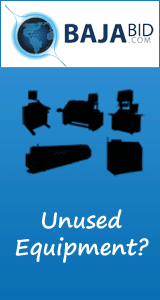Printed Circuit Board Assembly & PCB Design Forum
SMT electronics assembly manufacturing forum.
- SMTnet
- »
- Electronics Forum
- »
- Your opinion about RoHS and WEEE ?
Your opinion about RoHS and WEEE ?
![]() What do you think about RoHS (lead free) and WEEE ?
... and...
- Dec 15, 2004
by
Patrick Tavernier
What do you think about RoHS (lead free) and WEEE ?
... and...
- Dec 15, 2004
by
Patrick Tavernier
![]()
![]()
![]() Recommend to check ...
- Dec 15, 2004
by
Recommend to check ...
- Dec 15, 2004
by
![]()
![]() Its all just a fad...
...
- Dec 15, 2004
by
jdumont
Its all just a fad...
...
- Dec 15, 2004
by
jdumont
![]()
![]()
![]() I think they need to go after the real lead contaminants. P...
- Dec 15, 2004
by
RDR
I think they need to go after the real lead contaminants. P...
- Dec 15, 2004
by
RDR
![]()
![]()
![]() Here's my 10 cents
Studies done in the 1980's concluded t...
- Dec 15, 2004
by
Patrick Bruneel
Here's my 10 cents
Studies done in the 1980's concluded t...
- Dec 15, 2004
by
Patrick Bruneel
![]()
![]()
![]() It's driven by those highly technically astute politicians i...
- Dec 16, 2004
by
It's driven by those highly technically astute politicians i...
- Dec 16, 2004
by
![]()
![]() Kyoto anyone?
Sorry, couldn't resist.
...
- Dec 17, 2004
by
Rob
Kyoto anyone?
Sorry, couldn't resist.
...
- Dec 17, 2004
by
Rob
![]()
![]()
![]() CO2 is not the problem, CO (carbon monoxide) produced by com...
- Dec 17, 2004
by
CC to myself
CO2 is not the problem, CO (carbon monoxide) produced by com...
- Dec 17, 2004
by
CC to myself
![]()
![]()
![]() 1. Its market protectionism for the Europeans.
2. Silver ...
- Dec 21, 2004
by
1. Its market protectionism for the Europeans.
2. Silver ...
- Dec 21, 2004
by
![]()
![]() Here a link to a study on leaching
...
- Dec 21, 2004
by
Patrick Bruneel
Here a link to a study on leaching
...
- Dec 21, 2004
by
Patrick Bruneel
![]()
![]()
![]() Yeah Ken!!!
...
- Dec 21, 2004
by
RDR
Yeah Ken!!!
...
- Dec 21, 2004
by
RDR
![]()
![]()
![]() I agree that something has to be done with the lead waste bu...
- Dec 31, 2004
by
gpaelmo
I agree that something has to be done with the lead waste bu...
- Dec 31, 2004
by
gpaelmo
![]()
![]()
![]() You're right that us in the automotive market are exempt, bu...
- Jan 09, 2005
by
You're right that us in the automotive market are exempt, bu...
- Jan 09, 2005
by
![]()
![]() Greetings from Mexico
I can see several good opinions about...
- Jan 10, 2005
by
ricardof
Greetings from Mexico
I can see several good opinions about...
- Jan 10, 2005
by
ricardof
![]()
![]()
![]() Regarding Ken's statement that "Its market protectionism for...
- Jan 11, 2005
by
Regarding Ken's statement that "Its market protectionism for...
- Jan 11, 2005
by
![]()
![]()
![]() It is interesting that I have heard the market protectionais...
- Jan 11, 2005
by
RDR
It is interesting that I have heard the market protectionais...
- Jan 11, 2005
by
RDR
![]()
![]()
![]() Hi Patrick,
I see what you're all are saying, and can und...
- Jan 12, 2005
by
Rob
Hi Patrick,
I see what you're all are saying, and can und...
- Jan 12, 2005
by
Rob
![]()
![]()
![]() Good Morning Everyone,
This whole lead free thing has rea...
- Jan 12, 2005
by
CL
Good Morning Everyone,
This whole lead free thing has rea...
- Jan 12, 2005
by
CL
![]()
- SMTnet
- »
- Electronics Forum
- »
- Your opinion about RoHS and WEEE ?








